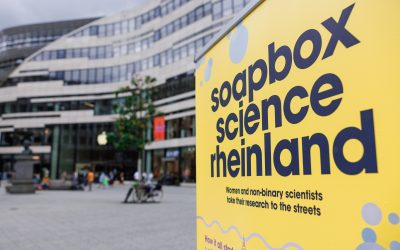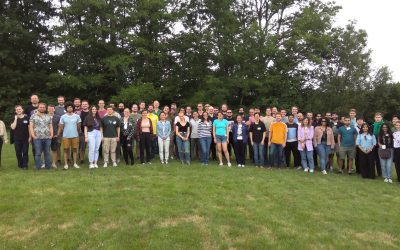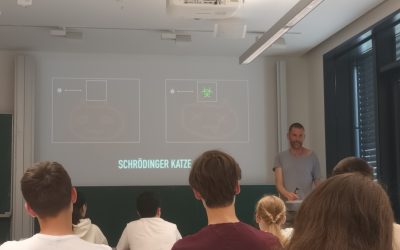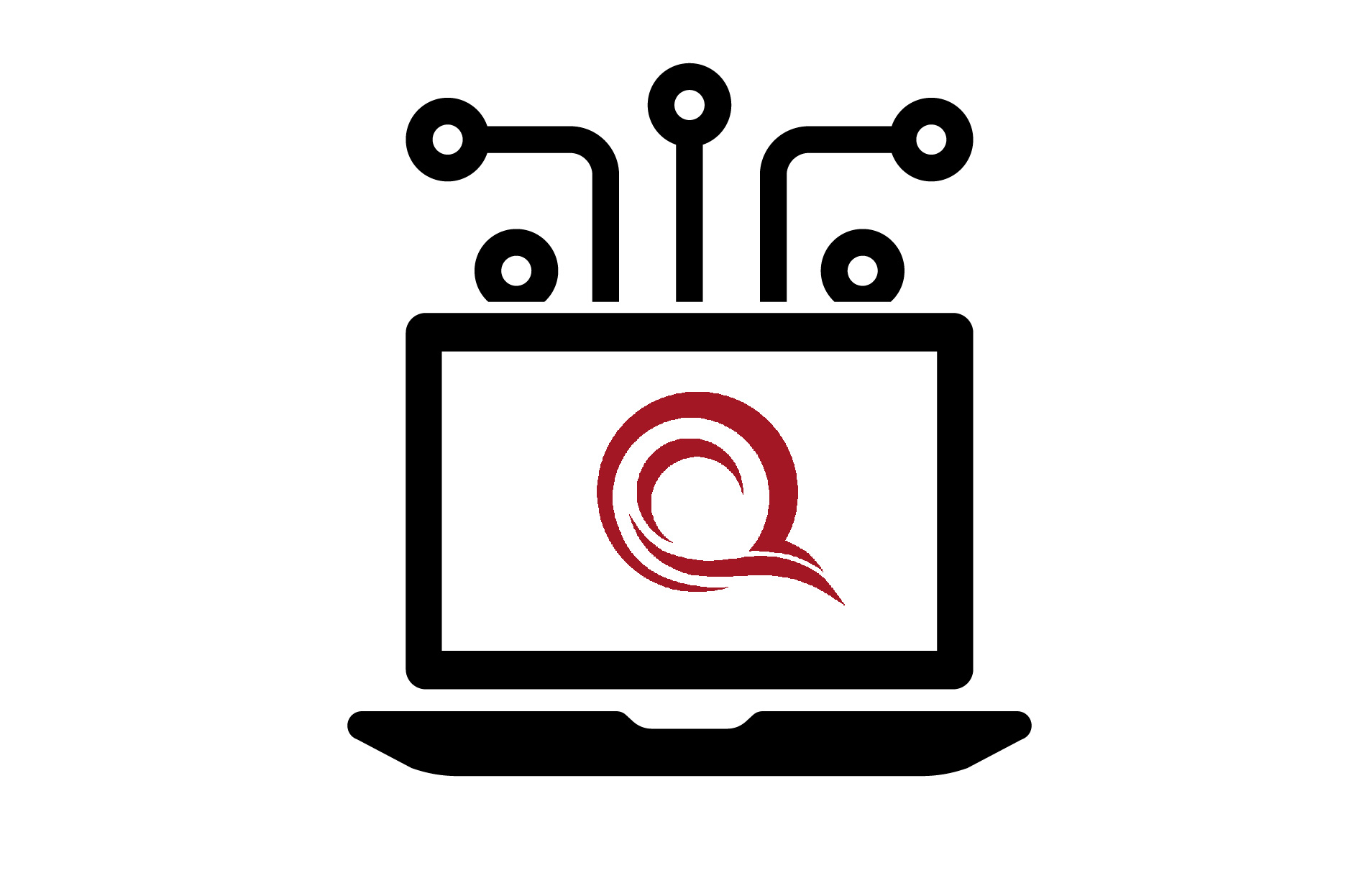Quantum technology represented for the first time in Nacht der Technik Cologne
For the first time, Nacht der Technik Cologne showcased the wonders of quantum computing research among its diverse program. On the night of June 21st, the physics department at the University of Cologne came alive as the department’s foyer and corridors of the second physics institute buzzed with activity. Over fifty visitors of all ages stopped by as part of their night tour, attending scheduled lab tours and talks.
The first tour led by Oliver Berunig took visitors to the Clean Room for material fabrication. There, research on the nanoscale to create topological matter—a promising platform for quantum computing—was presented. Alina Henriette Rupp then guided the second tour to the Laboratory for Quantum Electronics, which uses “Cologne’s most complicated refrigerator” to explore electron transport in exotic quantum materials. Researchers here work on exposing material properties to propose prototypes for innovative quantum devices.
The talks brought attendees back to the fundamentals: How exactly do quantum computers work? What can they do, and how are they built and programmed? Christoph Berke used Schrödinger’s cat to illustrate the fascinating quantum physics phenomenon of superposition, which enables a quantum particle to be in several states at the same time, providing the exceptional computational power of quantum computers. David Gross continued this exploration with further insights into the field.
During Nacht der Technik, technology companies, public institutions, and universities open their doors to allow visitors to experience their technology live on site. Around 68 companies and institutions from various sectors participated in this year’s event. Whether it is a digital start-up, a local fire department, a traditional company, or a quantum computing research network, the biannual Nacht der Technik tour grants you a look behind every door.
Previous events
Soapbox Science challenges rain in Düsseldorf
Soapbox Science challenges rain in Düsseldorf On August 5th, eleven female scientists gathered at Schadowplatz in Düsseldorf to engage the public with their scientific work using the attractive soapbox science format. Standing on soapboxes and employing simple...
ML4Q young scientists gathered in Eitorf from all sites for a summer retreat
ML4Q young scientists gathered in Eitorf from all sites for a summer retreat Eighty young ML4Q scientists spent two days in Eitorf in early July for a summer retreat. PhD students, postdocs, masters students, and undergraduate interns from different ML4Q...
Mini course on quantum computing for school pupils in Cologne
Glimpses from our JuniorUni eventMini course on quantum computing for school pupils in Cologne A three-day mini course targeting students from grades 8 to 10 (EF) recently took place at the University of Cologne. The course was led by ML4Q member, Alex Altland,...



